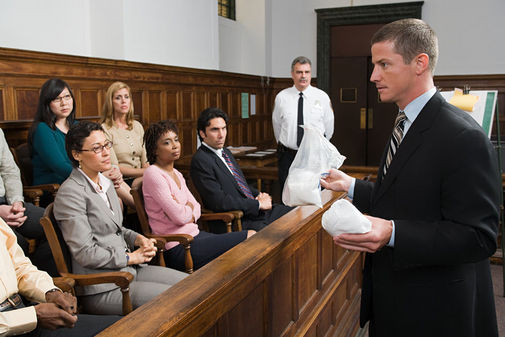How to Choose the Right Lawyer
Part 1 – Making the right decisions now may save you time, money, and hassle later on.
I often speak with prospective legal malpractice clients who say they wish they had made a better choice in lawyers. To be fair, a lot of lawyers I defend in disciplinary cases also wish they had avoided the problem client. Based on the positive feedback I received from a recent presentation on this topic, here are some tips to help you (as the potential client) choose the best lawyer for your specific needs.
Why do you need a lawyer?
This is actually the first question you should be asking yourself. If you can resolve the situation without a lawyer, you may think you can leave more money in your pocket. But here’s where a lawyer may be able to help:
- Reality check – tell you what you probably already know, but need to hear anyway.
- Get the facts – move beyond friend and internet advice to identify your specific legal need.
- Know when to worry – understand whether this is a big deal or not.
- The other guy has one – neutralize the situation.
Finding lawyer candidates
Before you look at the yellow pages or web directories, ask around. A friend or co-worker may have had a similar situation and can recommend a great attorney. Check your LinkedIn or Facebook network to see if you or anyone knows a lawyer. If you know a lawyer, ask for a referral. Lawyers are well connected, and may be able to refer you if your situation is outside of their specialty. If money is an issue, try the local Bar Associations, your legal aid office or the public defender’s office.
Questions to ask a prospective lawyer
Your initial meeting is like an interview, where both you and the lawyer determine if there is a good mutual fit. If your situation will require substantial involvement from an attorney (divorce, malpractice, worker’s compensation, transactional, serious personal injury, etc.), consider interviewing several attorneys before finalizing your decision.
Here are some questions to help you determine the best candidate for your individual needs, or at least to help narrow the field of possible candidates.
Do I have a legal problem? You may not, or you may not understand the magnitude.
Is this type of matter something that you routinely handle? Find a specialist who understands the laws, regulations and players (judges and other attorneys) involved with your specific situation. Ask for similar case examples, including time involved, fees, expenses and results. The lawyer won’t be able to provide confidential details, but general information is appropriate.
Do you have references? Note that some lawyers, mostly on the consumer side, cannot provide these, but it doesn’t hurt to ask. Some lawyers may have client testimonials available (if their State Bar Rules allow) for your review on their website or in other materials.
How long will this take? Although your results may vary… An experienced lawyer should have some general idea and be able to give a range.
What outcome should I expect? An experienced lawyer should be able to give you an educated opinion as to the range of possible outcomes. Remember that each client matter is different, and no lawyer has a crystal ball.
How much will this cost? In addition to the consultation costs (sometimes initial consults are free), look at a couple of different cost scenarios, such as the type of fee charged, and potential costs for certain events like a pre-suit negotiation, mediation, or full trial. If other lawyers, staff members, or experts will be involved, what are their rates?
Doing your homework before choosing your attorney can save you a lot of hassle later on, and choosing the best lawyer for the job may even positively impact the result of your claim, case, or deal. Make sure your attorney is well qualified to handle your specific situation, and with a little upfront due diligence, you’ll be able to establish a quality working relationship.
In Part 2 of this series, we’ll review the final decision-making process through the engagement contract.




You made a good point when you said to ask the attorney for some references even before hiring his services. It’s recommended that you ask the lawyer for a list of their most recent clients whom you can call and gather some feedback regarding their personal experience with the attorney. Their responses would somehow give you an idea if the lawyer is indeed reliable and trustworthy. If I were to hire a lawyer, I would make sure to keep this in mind. Thanks.
Thanks for your comment. Lawyers should make sure to obtain client approval before they give out such a list, though! This is because the attorney-client privilege applies to all lawyer-client communications…it generally doesn’t apply to the fact that the lawyer has been retained, but it might make a privacy conscious client a little mad if they find out the lawyer’s sharing their name without asking them first. You’ll notice that our testimonials are generally anonymous, with only client initials, to protect that privacy.